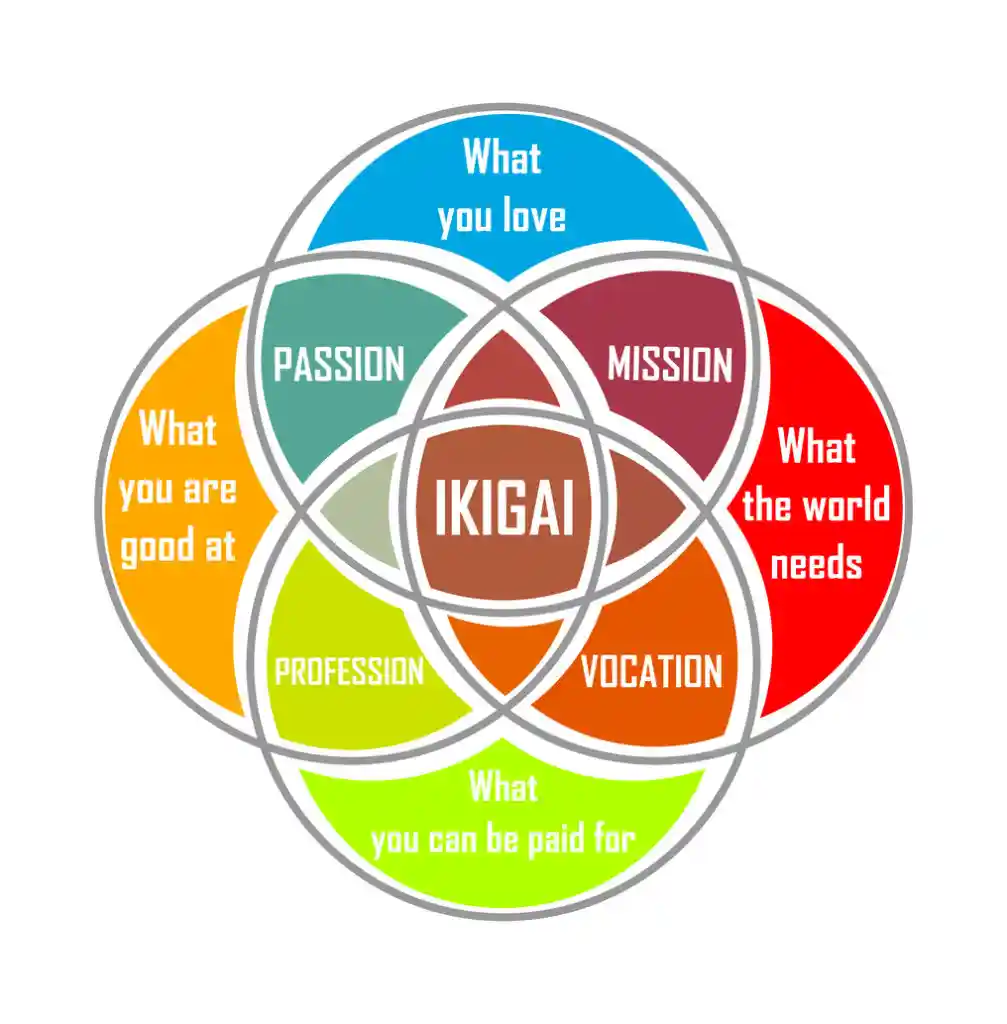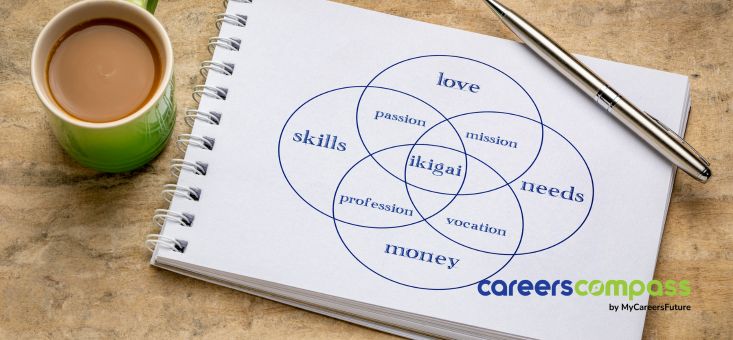As we bid farewell to the old and welcome the new, it’s time to level up your career game plan! Forget the cliché “new year, new me” mantra — let’s embark on a thrilling adventure to embrace the boundless possibilities of your work life.
Have you ever heard of ikigai? The ultimate Japanese life hack is taking the world by storm. But if you haven’t, no worries! In this article, we dive deep into the fascinating world of ikigai, uncovers its intriguing origins, and explores the amazing benefits it brings to your career journey.
What is ikigai?
Origin
So, what exactly is ikigai? Well, it’s a beautiful fusion of two Japanese words – “iki” meaning “life” and “gai” meaning “value” or “worth.” Ikigai is all about finding joy and purpose in life. This concept originated from Okinawa, Japan, a place known for its long life expectancies and some of the happiest people on earth.

And we’re not talking about pioneer or Merdeka generation lifespans either, in fact, Okinawa is one of the world’s five Blue Zones – regions where people live exceptionally long and fulfilling lives.
In 2010, writer Dan Buettner released a book titled Blue Zones: Lessons on Living Longer from the People Who’ve Lived the Longest, in which he studied areas in the world, home to the longest-living residents (including Okinawa). He discovered that although they may have a different word for it, ikigai, or having a “purpose in life” was a strong uniting link.

Concept
The best part about ikigai is that it’s a simple concept. It’s about harmonising the different aspects of your life that you may already be familiar with. For a better picture, refer to the Venn diagram below!

In short, ikigai is where your passion, mission, vocation, and profession intersect. It’s that sweet spot that gets you out of bed every morning and fuels your drive!
Why should you embrace ikigai for career planning?
Whether you’re starting your career journey or reevaluating your choices, ikigai offers a simple yet profound way to begin. Discovering your ikigai can be a transformative experience, helping you navigate career challenges and setbacks with purpose.
While finding your passions, strengths, and values may require some introspection and exploration, the reward of waking up every day excited to make a meaningful impact is truly priceless.
Even if you’ve already found your ikigai, there are ways to deepen your sense of purpose at work.
Read More: Re-evaluating Your Career Path: 5 Tips to Embrace Change for Professional Growth
How to apply the ikigai concept in career planning
Well, there are no quick fixes when it comes to planning your career. Various factors like finances, location, health, and relationships may influence your decisions. Your ideal job today may evolve as your skills, values, and opinions develop.
Neuroscientist, author, and broadcaster Ken Mogi explains in his book, The Little Book of Ikigai: The Essential Japanese Way to Finding Your Purpose in Life, that it doesn’t matter if “you are a cleaner of the famous Shinkansen bullet train, the mother of a newborn child, or a Michelin-starred sushi chef”—
“If you can find pleasure and satisfaction in what you do and you’re good at it, congratulations you have found your ikigai.”
The ikigai framework offers an opportunity to build a fulfilling career for yourself. Start by asking yourself these questions under each ikigai heading:
(A) Passion: Finding what you love to do
- What activities have brought you joy since childhood?
- Which tasks make you lose track of time because you’re so engrossed?
(B) Vocation: Finding what you’re good at
- What are your natural talents and strengths?
- What do people often turn to you for because you excel at it?
(C) Mission: Defining what the world needs
- What societal issues or causes deeply affect you?
- What matters to you on a global or local scale?
(D) Profession: Defining what you can do as a profession
- Can you offer valuable services or create products people would want?
- Is there a job you excel at that could easily become your profession?
Once you’ve answered these questions, discuss them with individuals who know you well. Can you envision a goal that encompasses all the segments of ikigai? If it fills you with excitement and energy, then it’s worth exploring further.
Read More: Unlocking Your Career Potential: 7 Self-Reflection Questions to Ask Yourself
Ikigai: There’s no right or wrong answer
Remember, there’s no right or wrong answer when it comes to applying ikigai to career planning. It’s about reframing what you already know and guiding you to discover more about yourself.
So, let go of preconceived notions and embrace the exhilarating possibilities that ikigai offers. Find what truly makes your heart skip a beat and pursue it with determination. All the best!















